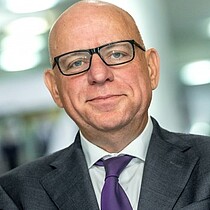

Article: Monday, 27 March 2017
Meetings of shareholders are sometimes reminiscent of parliaments in authoritarian states. Proposals of the company’s senior management are usually adopted without too much critical comment or opposing votes. Hans van Oosterhout, Professor Corporate Governance at Rotterdam School of Management (RSM) at Erasmus University, discovered that the few shareholders who do vote against management proposals often do this to express their dissatisfaction to the management of the company. Precisely what those dissatisfied ‘No’ voters want to make clear is related to the corporate governance model customary in the country, the research showed.
‘No’ voters at meetings of shareholders are often relatively small shareholders such as institutional investors and small investors, Van Oosterhout says. They stand at a greater distance from corporate management, unlike, for instance, wealthy families who own large numbers of shares. Their lines of communication with the directors are usually short and so they can exercise an influence on the course of the company behind the scenes.
Shareholders who vote against management proposals have less direct influence and during voting, usually represent a small minority. In practice, therefore, they rarely succeed in voting out proposals. Nevertheless, company managers would do well to listen to the grumbling, powerless minorities, Van Oosterhout says. His analysis of 12,513 proposals presented at meetings of shareholders in 717 companies in 15 West European countries shows that such opposing votes can act as a ‘canary in the coal mine’ with regard to the management’s performance.
The researchers concluded this by relating the percentage of ‘No’ votes to a number of corporate governance indicators for the company in which the votes were cast, such as the level of senior management salaries. Companies with high scores for a number of these characteristics also proved to face opposing votes more frequently at shareholder meetings, even after controlling for the content of the proposal on which the votes were cast. Precisely which part of corporate governance is regarded as problematic by the shareholders depends on the predominant corporate governance model in the country concerned, the study revealed.
In liberal market economies such as the UK and Ireland, shareholders primarily attach importance to the highest possible shareholder value, Van Oosterhout says. As long as that is assured, there is little objection to high salaries for directors and managers, and the percentage of ‘No’ voters is low, the results of the study showed.
What does worry shareholders in those countries is the presence of directors who represent other interests, such as the employees or the environment. This is because the influence of directors of this kind could jeopardize the realisation of maximum shareholder value. Companies with several such directors can therefore count on more opposing votes at the meeting of shareholders.
In co-ordinated market economies such as Germany and Austria, companies are not only focused on maximising shareholder value, but also attach importance to good cooperation with all stakeholders. The presence of such directors, who represent such partners therefore win greater trust from the shareholders than in the free market economies.
Within this ‘team production ideology’, however, high salaries for managers are more likely to affect shareholders like a red rag to a bull. After all, high salaries could mean that the management leans too far in favour of only one of all the parties: the shareholders. The interests of other parties could become neglected and that could jeopardise the highly valued cooperation. Companies with high salaries for senior managers in those countries can therefore also expect more opposing votes at shareholder meetings.
Van Oosterhout sees parallels in the outcomes of his study with the voting behaviour of citizens who regard referendums as an opportunity to express dissatisfaction with their government rather than voting on the subject at hand. And just as governments can regard that dissatisfaction as a sign from the concerned citizens, the researcher advises corporate boards to interpret opposing votes as a judgement on the governance and leadership of the firm. Even small percentages of opposing votes should lead them to search for the real underlying reason for the dissatisfaction.

Sauerwald, S., Oosterhout, J. van & Essen, M. van (2016). Expressive Shareholder Democracy: A Multilevel Study of Shareholder Dissent in 15 Western European Countries. Journal of Management Studies (STAR), 53 (4), 520-551.


Science Communication and Media Officer

Corporate Communications & PR Manager
Rotterdam School of Management, Erasmus University (RSM) is one of Europe’s top-ranked business schools. RSM provides ground-breaking research and education furthering excellence in all aspects of management and is based in the international port city of Rotterdam – a vital nexus of business, logistics and trade. RSM’s primary focus is on developing business leaders with international careers who can become a force for positive change by carrying their innovative mindset into a sustainable future. Our first-class range of bachelor, master, MBA, PhD and executive programmes encourage them to become to become critical, creative, caring and collaborative thinkers and doers.
